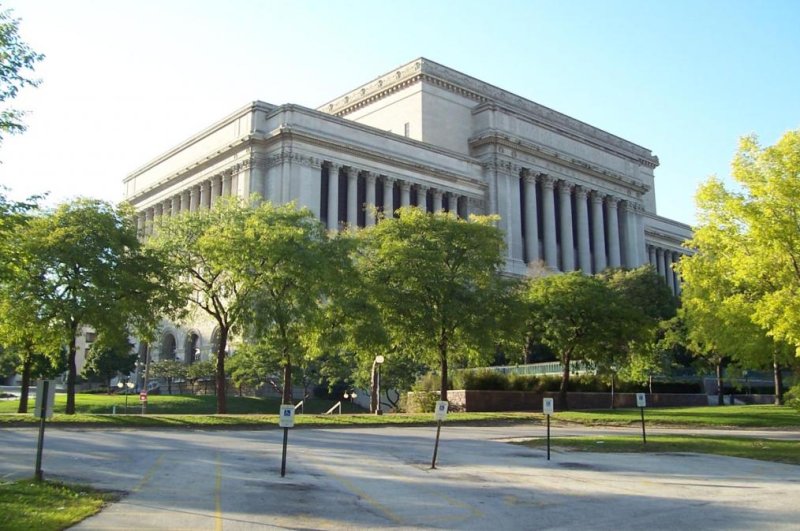Milwaukee County Courthouse is a historic high-rise municipal building located in downtown Milwaukee, Wisconsin. (Sulfur, 2006 GNU/CC)
MILWAUKEE, April 29 (UPI) -- U.S. District Judge Lynn Adelman ruled Tuesday that Wisconsin’s voter ID law requiring voters to show government issued photo ID in order to cast their ballot violates the equal protections clause of the United States Constitution.
In Adelman’s words, the law places "a unique and heightened burden on those who must obtain an ID if they wish to continue voting in Wisconsin.”
Voter ID laws are divisive, typically down party lines, with Republican proponents of voter ID laws claiming they help prevent voter fraud, while Democratic opponents claim the laws unfairly exclude the poor and minorities who are more likely to lack proper credentials.
Adelman found virtually no evidence to support the notion that voter fraud is a threat, saying, "The evidence at trial established that virtually no voter impersonation occurs in Wisconsin The defendants could not point to a single instance of known voter impersonation occurring in Wisconsin at any time in the recent past."
Adelman pointed out that the risks of committing voter fraud, with its costly fines and mandatory prison sentences, highly outweigh the benefits of casting one additional vote for a preferred candidate. He also noted that voter suppression is more of a concern to U.S. democracy than voter fraud.
Wisconsin Gov. Scott Walker, a Republican who supports the law, is expected to appeal.
Currently, 15 states have voter ID laws on the books. Adelman’s decision comes just a week after a judge rejected similar legislation in Arkansas.
These two rulings, along with one in Pennsylvania earlier this year, set a precedent for judges ruling on challenges to similar laws in places like Texas and North Carolina.















